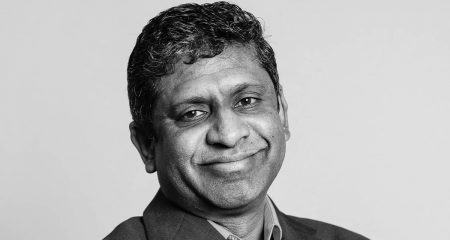
Liquid Telecom, the fast-growing pan-African telecommunications company majority owned by Strive Masiyiwa’s Econet Group, is getting ready to file for an initial public offering next year as it steps up expansion of its network across the continent, including South Africa.
Masiyiwa, who is Zimbabwe’s wealthiest businessman (he founded Zimbabwe’s leading mobile operator, Econet Wireless), said last week that he intends to list Liquid Telecom, which was founded 11 years ago, after turning down several multibillion-dollar offers to buy the asset.
The listing will take place on a bourse in Europe, rather than in Africa, though the group hasn’t decided which one, Masiyiwa said. The initial public offering will be used to raise capital to fund expansion of Liquid Telecom’s infrastructure in markets all over Africa and looks set to cement the company’s position as one of Africa’s most successful telecoms ventures.
The company, which already operates in Southern, Central and East Africa, has now set out plans to expand its fibre-optic broadband footprint in South Africa dramatically in the next 18-24 months.
Newly appointed Liquid Telecom South Africa CEO Willem Marais says the company, which until now has had only one fibre route in the country — a R100m link from Pretoria to the Zimbabwe border at Beitbridge — intends expanding its network across South Africa’s northern provinces and has earmarked about R250m for this over the next two years.
“There’s an absolute need for it if you look at demand in places like Polokwane, Tzaneen, Nelspruit, Rustenburg and Mahikeng for true broadband services,” says Marais, who joined Liquid Telecom from Seacom, where he was chief commercial officer of the submarine cable operator.
Liquid will build infrastructure in South Africa mainly to serve mobile and fixed-line operators as well as other service providers, rather than selling directly to retail consumers.
The company recently began the first phase of its roll-out in the northern provinces: it has extended fibre from Polokwane to Haenertsburg via Moria City in Limpopo, and this route will eventually reach Nelspruit via Hoedspruit, Bushbuckridge and Hazyview. A second phase will see the fibre extended from Nelspruit to Ermelo and potentially onward to Ladysmith in northern KwaZulu-Natal. A fibre spur from Nelspruit to Mozambique is also being considered.
The second new route is in North West, and will connect Rustenburg and Brits with Mahikeng and Klerksdorp, with the possibility of extending fibre to the border of Botswana.
Marais says Liquid Telecom has been mostly self-funded through working capital. Last year, however, it announced it had raised US$150m in debt financing from large global investment banks and facilitated by Standard Chartered.
Although Liquid is active (under the “Hai” brand) in the retail “last mile” into homes in a number of markets in Africa – including Zambia, Zimbabwe, Kenya and Uganda, where it provides both wireless and fibre broadband – Marais says there are no immediate plans for the South African operation to follow suit. This may come later, however, once it has grown its national fibre footprint. Its main focus for now will be on expanding its base of wholesale clients, including operators and Internet service providers, as well as concluding business with corporate customers.
He says that because of Liquid Telecom’s extensive network in Africa – it has 20 000km of fibre plus access to five subsea cable systems – it is well placed to provide connectivity services to South African companies that have branch offices across the continent. It recently signed a deal with MTN to give it access to fibre infrastructure in West Africa, too.
Founded in 2004 by Nic Rudnick, who serves as group CEO, Liquid Telecom was started as a satellite communications business. It later built a fibre network in Zimbabwe for Econet Wireless and other operators, and based on the success of that venture, it pivoted its business in that direction after 2009.
Today, it is one of the largest long-distance fibre operators in Africa and has networks in South Africa, Burundi, the Democratic Republic of Congo, Kenya, Rwanda, Tanzania, Uganda, Zambia and Zimbabwe. Wholesale customers include big mobile operators such as Econet Wireless, Vodafone, Orange, Airtel and MTN.
- This article was first published in the Sunday Times
- Subscribe to TechCentral’s free daily newsletter




